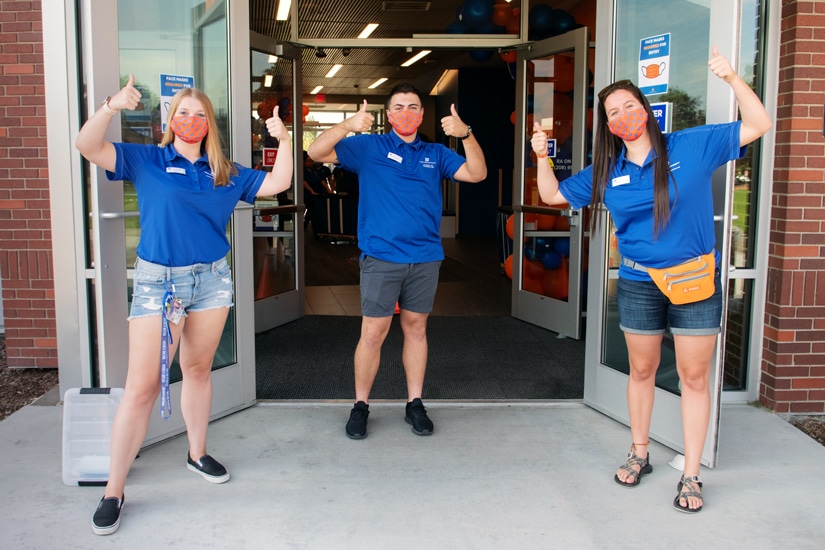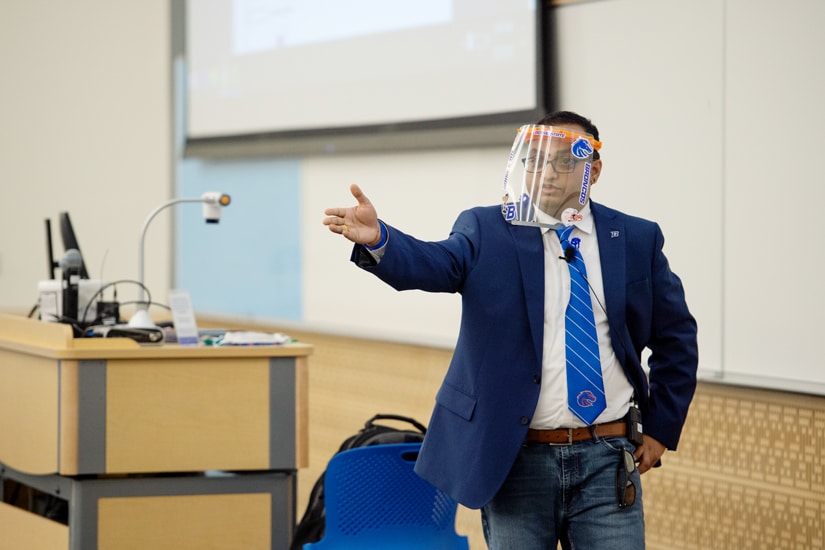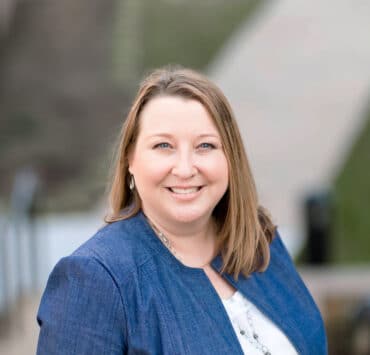|
Getting your Trinity Audio player ready... |
Shawn Miller was in a funk, professionally.
The former employment attorney, turned HR executive with the city of Boise, Idaho, had, over the course of his thirteen years with the city, “cleaned house” following the disarray left in the wake of a scandal and stabilized company infrastructure. With all that done, he made what he calls a business pitch to one of the departments. It was rejected.
“On the drive home, I remembered that I had made the same pitch to that person’s predecessor a few years earlier,” he recalls. “I began to feel like I was pushing the same rock up the same hill.”
He entered what he calls “the exploratory phase” of his career. Three things happened. First, Miller happened to see a video by popular piano/cello ensemble the Piano Guys where, at the piece’s conclusion, the cello player was in tears. “I thought, ‘How do you find a career you feel that passionate about?’” Miller says.
Next, his eldest son introduced him to a book, How Will You Measure Your Life? Co-written by bestselling innovation expert Clayton Christensen, the book addresses finding satisfaction and meaning in one’s career. “I was hooked,” Miller says.
“I don’t even like the words ‘human resources’ anymore because it commoditizes human beings.”
Shawn Miller
The third was a conversation with a realtor friend. “Going into real estate just wasn’t in the cards,” he explains, “but during that conversation, he said something that always stuck with me. He said that even if he didn’t make much money, he would still be a realtor, as that was what he was meant to be.”
Miller considered resigning but then stumbled upon the idea of building a company culture focused on nurturing an emotional connection between the employees and the organization. “We had done all the regulatory things right, but we weren’t moving forward,” he says.
He had found his passion. The mayor not only didn’t accept Miller’s resignation but also asked, “How do we do it?”
“We blew up our old employee manual and created this very conversational fun-to-read handbook that poked fun at municipal government and was self-deprecating,” he explains. “We went from a regulatory approach to a psychological humanist approach. I loved it, and when I saw an opening at Boise State, I took the opportunity to come and try to do the same thing in higher education.”

HR has long been low-hanging fruit for comedy writers, and Miller gets it. “The caricatures are humorous because there is truth in them,” says Miller, who is chief human resources officer at Boise State. “You only have to say the words ‘performance appraisal’ or ‘open enrollment’ to make people roll their eyes.”
Another reason Miller can laugh is because he was that guy. “I realized while you have to respect regulatory, you have to flip that model on its head,” he explains. “The majority of employees want to do the right thing and be a part of a shared positive company experience. Organizations need to realize that everyone is valuable with a unique background, and they need to respect, appreciate, and leverage that for the benefit of that person and the organization. Those are the organizations that are going to thrive.”
In 2011, Miller launched what is now called BestDayHR to create easy-to-use HR software tools for small-to-mid-size organizations that do not have full-sized HR/IT departments. “We help organizations build deliberate cultures at each phase of the employee life cycle,” he says.
For Miller, it’s the best of both worlds—working with a great organization during the day and helping companies build great organizations at night. His intention is to upend perceptions and practices of traditional HR. “I don’t even like the words ‘human resources’ anymore because it commoditizes human beings,” he says.
The pandemic disrupted the workplace and the traditional nine-to-five mindset. “When we talk about moving HR from regulatory to emotional, COVID has put that on steroids,” Miller notes. “The pandemic has caused people to question how they are spending this valuable gift of time. More than ever, they are questioning what it means to have a meaningful career. When someone tells me they hate their job, I diagnose that to mean that their core values are out of alignment with the organization’s lived values.”

“COVID has made us realize we can work in a different way,” he continues. “Now, the most successful organizations will be those that become more empathetic.”
At Boise State, Miller and his team concentrate on forging a seamless employee experience by establishing a welcome team, a growth team, and a farewell team. “One of the things I’m most proud of,” he says, “is that our group has flipped the model where it’s now focused on the customer, the applicant, and the employee, as opposed to doing business based upon how we as a department want business to be done.”
“As a strategic consulting partner, Baker Tilly was excited to collaborate with Miller and team using Oracle Cloud to drive continuous improvement and innovation into how HR supports the institution,” says Jeffrey Haynes, director at Baker Tilly.
Taking his cue from psychologist Frederick Herzberg, Miller is a strong advocate of fostering an environment where employees feel that they are part of something bigger and are a valued part of the organization. Job perks, he says, don’t make someone love their job, they make them hate their job less.
“Good ideas, the greatest flashes of inspiration, come from all parts of an organization,” Miller says.

